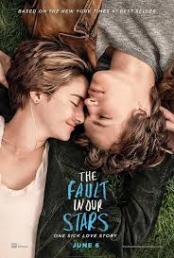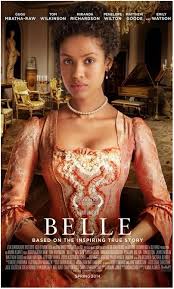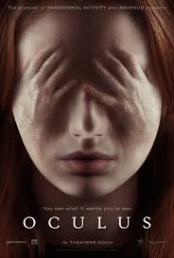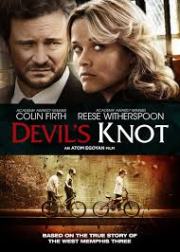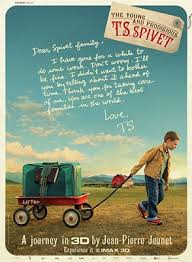The Fault In Our Stars
Director – Josh Boone
Starring – Shailene Woodley, Ansel Elgort, Laura Dern, Sam Trammell, Willem Dafoe
Length – 126 minutes
Certificate – 12A
Much has been written and spoken about The Fault In Our Stars, a successful bestselling novel amongst teenagers, in the lead up to its release. Telling the story of Hazel and Augustus, two teenagers who meet at a cancer support group and fall in love in spite of Hazel’s terminal diagnosis, the novel has worked its way into the hearts of many, although I myself had very little knowledge of it other than the basic synopsis coming into this film, save that this was that rarest of things, a Young Adult novel without witches, werewolves, vampires or future dystopias, just actual human beings.
The first thing I must say is that my greatest fear going into this film was wholly unfounded. The use of cancer as being central to the story was never crass in the slightest way. The writer John Green may have made some major missteps in crafting this story, among them an ongoing ‘metaphor’ involving an unlit cigarette that I found dreadfully irritating and self indulgent, but his history of having worked with cancer stricken teenagers rings true throughout the film and the sensitivity with which this most dreadful of subjects is handled should both be admired and held up as a shining example to other films as an example. The film’s story is intelligently written, never taking the easy route and adding a few twists that I had never expected of the film, making it a more enthralling watch than I had expected. The basic premise of the story is very much like something out of one of those awful Nicholas Sparks novels that make it to the screen every other year or so, the kind that are so cloyingly sickening I find them almost unwatchable, but fortunately the writing of the characters, and indeed the humour makes it feel written by that great writer of teenagers, John Hughes. If this film had been made in the 1980s it is highly possible to see Molly Ringwald and John Cusack in the lead roles, with Simple Minds on the soundtrack.
It is all well and good to have a brilliantly written romance, but you need to have engaging leads with good chemistry to make it believable, just look at how bad last year’s version of Romeo and Juliet turned out. In Shailene Woodley and Ansel Elgort the film has struck gold, finding two brilliant young actors totally at ease with one another to such an extent that they fully bring the relationship of Augustus and Hazel to life. Despite having played siblings in the recent Divergent they are as natural an on screen couple as you will see all year. Elgort has the easier job as the charming, witty Gus, who lets his friends break his basketball trophies to let out their anger, or who refers to the cancer that has seen him lose a leg as making him ‘half cyborg’. All this comes naturally to him, as does Woodley’s more pragmatic approach. In lesser hands the character could have become drippy on levels only Bella Swan has approached but she adds a sense of maturity to the character, and deals wonderfully with the impediment of a breathing tube she is forced to wear throughout. This never feels like an appendage from the props department but a natural extension of her character. Both of them deal well with the occasionally clunky dialogue about oblivion or being grenades with aplomb and, alongside nice supporting turns from Laura Dern and Sam Trammell as Hazel’s parents, deal sensitively and intelligently with the material.
Unfortunately some of the film’s plot involves the fascination of the leads over a book ‘An Imperial Affliction’ about cancer suffering. This leads to an extended plot jaunt to Amsterdam for them to meet the writer, a sequence so misjudged it threatens to destroy the good work of the rest of the film. The writer, a misanthropic alcoholic as played by Willem Dafoe never seems to fit into the story as I’m sure was intended, and all feels hopelessly lost at sea. A similar misjudgement is Dafoe’s scenery chewing performance, at odds with the naturalism all around him, hammering home the alcoholism by having either a glass of scotch or a hipflask in his hand at all times. Similarly, I am sure there was a metaphor in the severely breathing impaired Hazel and amputee Augustus climbing to the top of the Anne Frank Museum (which has no elevators) to symbolise their triumphs over adversity, but it was lost on me. All the Amsterdam sequence did was highlight the otherwise unnoticeable length of the film, which probably is twenty minutes too long.
With regards to the elephant in the room, much has been said about the potential of the film to elicit tears by the bucket load from its audience. In the screening I saw the film in the final fifteen minutes were sound tracked by sniffling, sobbing, and coughing to try and hide the tears. I will not deny that it is a deeply emotional denouement to the film, nor will I deny that at one point I found myself shedding tears, but only at one point. I can understand why people find it as emotionally shattering as they do, I was just not as moved. I was surprised with how warmly I felt towards the film, although most probably not as warmly as the target audience did. I would say it is eminently watchable, although you would have to really be in that target audience to totally get it.
* * *
Belle
Director – Amma Assante
Starring – Gugu Mbatha-Raw, Tom Wilkinson, Sarah Gadon, Emily Watson, Sam Reid, Miranda Richardson, Tom Felton,James Norton, Penelope Wilton, Matthew Goode
Length – 104 minutes
Certificate – 12A
Belle is a British period drama with a difference. It may have a distinct air of Sunday teatime drama about it but that cannot hide its refusal to hide away from the subjects of race and class, usually eschewed in dramas of this sort in favour of a good old fashioned romance. The centrepiece of this extraordinary tale is Dido Elizabeth Belle, the mixed race, illegitimate daughter of Captain Sir John Lindsay, a respectable sailor. Brought up by her father’s family she finds herself to be treated like one of them by the family, but in others her illegitimacy and skin colour cause barriers. When that most Jane Austen of problems, finding a suitable husband, rears its ugly head she and her cousin are thrown into a most unenviable situation.
It is easy to say that the period details and costumes are sumptuous, because they are, but even lesser period dramas like the recent In Secret get these details right. To set the scene to perfection is not enough in my eyes with regards to this genre, I like meaty story and subtext with my bonnets. The story itself is for the most part very Jane Austen, from the vile, loathsome racist being pursued by Belle’s naive cousin, the linking of his brother to Belle herself despite the wholesome disagreement of his family, and the idealistic young lawyer who is clearly this film’s Mr Darcy from his first appearance. I found the issue of class, social status and positioning to be done very well, with the intricacies of the situation, including the handsome inheritance Belle is subject to and the financial perils of the disinherited cousin. It is material such as this that makes you realise that you are not watching another dreary adaptation but something of more class.
Furthermore the issue of race is handles exquisitely by the writer and director and this entire subplot makes the best material of the film. Belle is an angry film, maybe not as angry as Steve McQueen’s 12 Years A Slave but still a seething torrent railing against slavery. In the background of all the courtship intrigue is a strangely positioned political drama that somehow fits perfectly with the rest of the film. It involves the ongoing case of The Zong, a true life incident in which slavers tried to defraud their insurers by throwing their human cargo overboard pleading loss of water. Although her guardian was Lord Chief Justice and key to the case that would go to change the political landscape with regards to slavery, I highly doubt that Belle would have taken such a keen interest in said case, or that it is in this film for any other reason than to facilitate the budding relationship between the heroine and one of her suitors, John Devinier. Still, it does make for compelling viewing.
In the lead role the newcomer Gugu Mbatha-Raw is a revelation, stealing the limelight comfortably from much more experienced actors with a performance that marries the strong with the fragile almost effortlessly and commands the screen whenever it is deigned with her considerable presence. Elsewhere the older, more acknowledged thespians do good work with interesting material, with a waspish Miranda Richardson a particular highlight as the mother of two sons whose social climbs are more for her benefit, while Tom Wilkinson once again continues to prove my theory that like the late Philip Seymour Hoffman, there is no such thing as a bad Tom Wilkinson performance. The trio of suitors suffer slightly from the one major flaw of the screenplay, them being made to be more stock characters in the ilk of an Austen or Bronte character but this is not too big an issue, although Tom Felton really should try to broaden his range, this is one nasty character too many for him I feel. While the writing slightly lets these characters and actors down for everyone else it is a godsend, with Misan Sagay’s screenplay occasionally igniting with passages of dialogue that truly provide wow moments, not just restricted to one or two characters but almost the whole cast.
The film does unfortunately lose its nerve and falls into traditions that are about as Hollywood as they come in the final few moments but this did very little to diminish my enjoyment of the film. It was a period drama, but it was the additional substance that I took away from it. Yes it may have bonnets aplenty, but it has a lot more besides that.
* * * *
Oculus
Director – Mike Flanagan
Starring – Karen Gillan, Brenton Thwaites, Katee Sackhoff, Rory Cochrane, Annalise Basso, Garrett Ryan
Length – 104 minutes
Certificate – 15
Of all the cinematic genres horror is for me the hardest to get right and indeed the one in the most current state of ill health. Gone are the slasher movies that terrified people throughout the 1980s and indeed the intelligent ideas that have permeated horror throughout its history. Nowadays we get either the haunted house/possessed object movie or we get found footage movies, a trend pioneered into the modern age by 1999’s The Blair Witch Project and one that has not seen an original idea for a good half a decade. Oculus may not be a horror classic but the fact that it provides something different to a tired and worn genre gives it credit in my book.
The Oculus in question is the Lasser Glass, a mirror with strange powers that is found in the childhood home of Kaylie and Tim, causing unspeakable horrors that leave Tim incarcerated in a mental institute for over a decade. Upon his release the now adult Tim and Kaylie try to destroy the object that has brought them so much suffering.
Playing out over two time frames, the film’s successes are very well done, while its failings are severe let downs. Despite having very little originality to it the film never sets its stall out as one particular genre cliché, instead opting to play out as more of a traditional horror movie, with the modern elements of possession based horror and found footage scattered through, almost undercutting the story in an attempt to bring in viewers. There are even a couple of subtle references to Stanley Kubrick’s fantastic The Shining, which hint at a darker, more intelligent movie than the one that made it to the screen.
The two major successes of the film are to never set its stall out too early, keeping the audience in the dark as to what the rules of engagement with this particular story are, and to have an illusory quality to the foe, making it almost impossible for the audience to work out if what they are watching is real or whether it is a trick, which works very well up to a point. This leads to some fantastic displays of body horror, including one particularly wince-inducing scene involving a mix up between an apple and a light bulb that I found almost impossible to watch.
The dual time frames structure allows for some interesting performances across the board. Although Gillan and Thwaites do good jobs within the modern timeframe, with Gillan particularly good even though her acting ability far outweighs the material she has to work with here while successfully masking her strong Scottish brogue in the process, the key performances are within the flashbacks. Annalise Basso and Garrett Ryan, playing the younger versions of Kaylie and Tim give measured performances as terrorised children, never dropping into cliché ridden screaming. The stand out performance is Rory Cochrane as the father, superbly creepy and doing his best to channel Jack Nicholson in a performance that probably makes the film work as well as it does.
It is unfortunate then that the film never gains the courage to be scary enough, choosing instead to suffice with creepy, save for the odd predictable jump scare and a couple of incredibly nasty moments that truly unsettled me. Eventually the fragile web it had woven with regards to illusion and split time frames came apart spectacularly, and for a good ten minutes I had absolutely no clue what timeline I was in, whether the illusion rules were still in play, and the film lost me, although I did pick the threads up just in time for the ending. It is no classic, although it is a good film, it is just a shame because it had the potential to be so much more.
* * *
Devil’s Knot
Director – Atom Egoyan
Starring – Colin Firth, Reese Witherspoon, Bruce Greenwood, Dane DeHaan, Alessandro Nivola, Kevin Durand, Mireille Enos, Amy Ryan, Elias Koteas
Length – 114 minutes
Certificate – 15
Based on the story of the West Memphis Three, Devil’s Knot is the dramatic retelling of the controversial and shocking case in which three boys were sentenced to life, or in one case death, for the satanic murders of three eight year olds in small town Arkansas, despite protestations at the flimsiness of both evidence and police procedure. This has already been subject to four documentaries, one of which is specifically referenced within the drama here, and it remains unclear to me exactly what this drama brings to the story, other than A-List clout.
Looking on the bright side, the opening sequence involving the disappearance of the boys and their subsequent discovery in a small pond deep within the woods is fantastically disturbing, putting into mind more straightforward thrillers such as Gone Baby Gone and Prisoners, and is the clear high point of the film. Other than this, the backwater clichés, stereotypical private eye, extended courtroom sequences and miscarriage of justice preaching plays out exactly like a John Grisham thriller, something that fortunately we have not had to endure for a decade, so please don’t make us start again.
I cannot even begin to describe how offensive I found the portrayals of the residents of the town as good old fashioned rednecks, all vest tops, handlebar moustaches, mullets and drawling, trailer trash accents. Seeing the likes of Alessandro Nivola and Kevin Durand descending into such horrific stereotype in a seemingly serious drama defied belief and left behind a distinctly bad taste. Casting wise the film felt utterly flawed and let itself down irredeemably. Reese Witherspoon and Mireille Enos escape unscathed from the encounter with their roles, Witherspoon especially acquitting herself well as the bereaved mother searching for answers in her grief, although the role did remind me of a better one she played in Mud. Other than that the film dreadfully underused the excellent Dane DeHaan, the name in the film that attracted me most to it, who is his usual excellent self in his few scenes, while Bruce Greenwood felt like a spare part as the judge of the trial. The biggest grievance I have with the casting however concerns Colin Firth. Great actor though he is, he has a relatively limited range for stuffy, upper class Brits, which he does well. Whichever idiot thought sticking him right into the middle of this melting pot of differing southern drawls that seemingly traverse the whole Bible Belt and expected him to a) do a convincing and accent and b) do a good job as the down at heel investigator needs severely reprimanding. This performance, complete with the worst beard in recent years makes his performance in Gambit seem superb, he is awful, and not having a convincing lead hurts the film greatly.
As the film reaches the trial, there is still a good forty minutes left to run and boy does it tell. The characters are all distanced from one another, the dialogue and story becomes exceptionally dry and without an in point to the drama at this point the whole thing falls flat on its face never to pull itself back up. The human stories made the first hour of the drama passable, the last hour is near excruciatingly tedious, I felt myself nodding off at points.
This whole film smacks of sensationalism, made for the people Hollywood considers of too little intelligence or of too narrow mind to watch the documentaries. I myself have never seen them, nor indeed have I ever heard of the West Memphis Three prior to seeing this film. The background to the story, told to me here in the most clumsily constructed on screen information subtitles in living memory, has piqued my interest in the subject enough to track down these documentaries, so for that I guess I have to be thankful. For the rest of this film the series of catastrophic misjudgements, save for the odd performance or sequence are just astonishing, and borderline offensive, yet the film still manages to be incredibly dull despite the endless scope for laugh out loud potential.
* *
The Young And Prodigious T.S. Spivet
Director – Jean-Pierre Jeunet
Starring – Kyle Catlett, Helena Bonham Carter, Callum Keith Rennie, Judy Davis, Niamh Wilson, Jakob Davis
Length – 105 minutes
Certificate – 12A
This really is a strange little curio of a film from Jean-Pierre Jeunet. T.S. Spivet is the young protagonist, a ten year old young boy whose levels of boy genius mean that while his sister is waxing lyrical about the benefits of Miss USA and his brother is engaging in the traditional rough and tumble of childhood, he is busy conducting scientific experiments, concluding in him creating a means for perpetual motion, a scientific Holy Grail. Winning an award for said invention T.S. goes on a cross country trip via freight train and trucker to get to the Smithsonian in Washington DC to collect his prize and make his speech. Like Jeunet’s most celebrated work, Amelie, this film nominally inhabits the same world as you or I, with references made to things happening today, however it is more like a dream like, fantasised version of an America long lost to the vast onslaught of civilisation, just as Amelie was a picture postcard look at Paris.
There is a good portion of the film where I would rank it alongside the great films of the 1980s, such as The Goonies, E.T. The Extra Terrestrial or Stand By Me, in which children go on impossible and fantastical adventures. At times the landscapes really did bring Stand By Me, one of my very favourite films to mind, and to mention this with films like that is very high praise indeed. The scenery is beautifully shot, with T.S’s train crossing vast expanses of emptiness, the natural beauty on show astonishing, complimented by a very nice country and western inflected soundtrack by Denis Sanacore. Alongside this the film handles the regular flights of fantasy well, complete with lovely quirky animations of scientific workings that give the film its individuality, while still allowing the drama to play out as Home Alone On The Road (T.S. lives in a motor home for a time and the actor playing him bears a strong resemblance to Macaulay Culkin).
This is not just a light and fluffy little creation though, there is serious substance underneath involving the death of a child, something handled empathetically and sensitively, never feeling tacked on to the humour yet never taking any of the humour from the film either. Kyle Catlett is a revelation as T.S. This is one of the best child performances of recent years, given that for much of the time he occupies his own little world, be it on his impromptu roadtrip or within his flights of fantasy. He holds the screen and not only manages to be an incredibly likeable screen presence, but manages to handle the grief and guilt over his brother’s death convincingly, as well as elicit sympathy when his character is injured on his quest. This is not a film in a hermetic and safe world, children do get hurt, yet this is never upsetting, merely convincing that this is a film with more than surface. The portrayal of the parents as an aloof cowboy type figure and a kooky zoologist may have been too much for me to bear, however Callum Keith Rennie and particularly Helena Bonham Carter do more than enough to make these seemingly at odds characters fit seamlessly into the story, adding extra layers of pathos to T.S’s story of loneliness and abandonment.
The film is not without flaw, although for a good hour or so it pretty much is. Once T.S. reaches his venue the film oddly manages to lose motion, ironically, given the subject of his award. Not aided by a far too over the top performance by Judy Davis as a museum curate hungry for fame the film treads a path of manipulation of T.S. and his invention, putting him in interviews, on chat shows, all to very little end. At this point the natural humour becomes forced, feeling more slapstick as the film tries to wrestle this unruly side plot into its natural story arc unsuccessfully. All this succeeds in my losing some goodwill towards it and it becoming twenty minutes too long, which felt like a real shame. Overall The Young And Prodigious T.S. Spivet is a film seemingly from a bygone age, a real treat, and a film that is suitable for the whole family to enjoy.
* * * *
